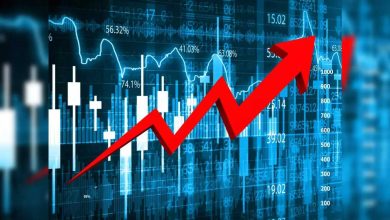Tesla EV Empire Under Siege: How BYD Tripled Sales While Musk Pivots to Robots and Politics

The electric vehicle race is no longer a close contest. While Tesla once stood as the undisputed champion of the EV world, a dramatic shift has occurred. Chinese auto and battery behemoth BYD is not just winning—it’s lapping the competition, with EV sales nearly triple those of Tesla and a stunning reversal in profitability that has left investors reeling.
As BYD solidifies its manufacturing dominance, Tesla and its CEO Elon Musk are making a high-stakes pivot away from their core business, betting the company’s trillion-dollar valuation on unproven robotaxis, humanoid robots, and polarizing political ventures.
The Numbers Tell a Stark Story
The second-quarter results paint a clear picture of two companies on diverging paths. While Tesla’s deliveries of 384,122 vehicles were better than some feared, they still represented a 13.5% decline year-over-year. In stark contrast, BYD sold a staggering 1,145,150 electric vehicles in the same period, a 16% increase, with its all-battery EV sales alone crushing Tesla’s total for the third consecutive quarter.
The financial tables have turned as well. Tesla’s Q1 earnings plunged 40%, and the company would have posted an operating loss without the regulatory credits that are set to disappear in the U.S. Meanwhile, BYD’s Q1 net income of $1.26 billion didn’t just grow—it officially surpassed Tesla’s for the first time, marking a symbolic and financial power shift.
Tesla’s Troubles: An Aging Fleet and Brand Fatigue
Tesla’s challenges are mounting. Its vehicle lineup is showing its age, and the much-hyped Cybertruck has been a commercial “bust,” with combined sales of the Model S, X, and Cybertruck totaling just over 10,000 units in Q2. Making matters worse, the loss of major U.S. EV tax credits after September 30th is expected to deliver a significant blow to both sales and profitability.
This is compounded by serious brand damage stemming from CEO Elon Musk’s increasingly volatile political presence. After a public falling out with the Trump administration over tax and spending policies, Musk has alienated a portion of Tesla’s core customer base and created regulatory uncertainty. His latest move—a vow to create a new “America Party”—suggests he will remain a polarizing figure, further intertwining Tesla’s brand with his personal politics.
Musk’s Pivot: From EVs to AI and Politics
Faced with a struggling EV business, Musk is steering Tesla toward a radical new future. The company has launched an invite-only robotaxi service in Austin, Texas, but the effort is still in its infancy, requiring safety monitors and suffering minor incidents, including a collision with a parked car.
The long-promised future of Full Self-Driving (FSD) for consumers remains a distant goal, with Musk recently stating it may arrive by late 2026. The Optimus humanoid robot, another of Musk’s multi-trillion-dollar bets, has also reportedly suffered a setback, with a redesign underway. For now, Tesla’s massive valuation appears to be floating on the promise of these future technologies rather than the reality of its current EV operations.
BYD’s Recipe for Global Dominance
While Tesla bets on the future, BYD is conquering the present. The Chinese giant is executing a classic strategy of market saturation and technological iteration. It offers a wide array of EVs and plug-in hybrids at every price point—from under $10,000 to over $150,000—and is constantly launching new and upgraded models.
Key innovations are also being rolled out at a blistering pace. BYD has made its Level 2 driver-assist systems standard across its lineup and has unveiled technology that allows EVs to be charged in as little as five minutes. With aggressive overseas expansion, including new factories planned for Hungary, Turkey, and Brazil, BYD is strategically sidestepping tariffs and cementing its global footprint.
An Uncertain Road Ahead for Both Titans
Neither company is without its challenges. BYD has initiated a fierce price war in its home market, slashing prices by up to 34% to squeeze competitors—a move its own executive called “not sustainable.” The strategy has put downward pressure on its stock, even as it has been a top performer for the year. Furthermore, new and aggressive competitors like Xiaomi, whose YU7 crossover threatens the Tesla Model Y in China, are intensifying the battle.
For investors, the choice is clearer than ever. BYD stock represents a bet on a manufacturing powerhouse that is dominating the current EV market through scale, innovation, and aggressive expansion. Tesla stock, down significantly in 2025, is a bet on Elon Musk’s vision for an autonomous, AI-driven future. As the rivalry continues, the world is watching to see if Tesla’s futuristic gamble can pay off before its EV empire is completely overtaken.




